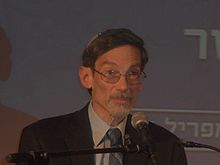Rabbinic and academic career
Golinkin began to teach Talmud at The Jewish Theological Seminary (JTS) in New York in 1980 and Talmud and Jewish Law at Neve Schechter, formerly the Israeli branch of JTS, in 1982. In 1987, he began to teach Talmud and Jewish Law at The Seminary of Judaic Studies (later renamed: The Schechter Institute of Jewish Studies) in Jerusalem. Since 1990, he has worked full-time as one of the leaders of the Schechter Institutes. From 1990 until 2000, he served as Assistant Dean and later as Dean of the Schechter Institute and Schechter Rabbinical Seminary.
He served as President of The Schechter Institute from 2000-2015, in which capacity he served as chief academic officer as well as chief fundraiser for all the Schechter non-profits, including TALI, Neve Schechter in Tel Aviv, and Midreshet Schechter in Ukraine. In 2015, he became the President of the Schechter Institutes, Inc. in which capacity he continues to serve as chief fundraiser, while teaching and serving as editor of all Schechter academic publications.
During Golinkin’s years at Schechter (1990ff.), the Schechter academic programs grew from 35 students to 700 students with over 2,000 graduates; the TALI school system grew from 3,000 children to 65,000 children; and Midreshet Yerushalaim (later renamed Midreshet Schechter) grew from one school to a network of camps, schools and synagogues throughout Ukraine. During his tenure as President, the Schechter Institute received accreditation from Israel's Council for Higher Education, its full-time faculty doubled and its library stacks more than tripled. Golinkin led the building campaign which built the new campus of the Schechter Institute in Jerusalem, as well as the Neve Schechter campus in Tel Aviv. Neve Schechter opened in 2012 as a synagogue, gallery space, and center for Jewish culture which now serves 50,000 people annually. He was also responsible for the purchase and restoration of the Midreshet Schechter building in Kyiv.
Golinkin is the founder and director of the Institute of Applied Halakhah at Schechter, which has published over 35 books in Hebrew, English and other languages. He directs the Center for Women in Jewish Law at Schechter, which has published five books and two series of multi-lingual booklets on women in Jewish law. He is the founder and director of the Midrash Project at Schechter, which has published eleven volumes related to Midrash. For twenty years, Golinkin served as Chair of the Va’ad Halakhah (Law Committee) of the Rabbinical Assembly which writes responsa and gives halakhic guidance to the Masorti (Conservative) Movement in Israel.
Golinkin is the author or editor of sixty-five books. Forty of his books are devoted to Halakhah (Jewish Law), his primary field of study, including Responsa of the Va’ad Halakhah of the Rabbinical Assembly of Israel (6 volumes), The Responsa of Professor Louis Ginzberg,The Status of Women in Jewish Law: Responsa (Hebrew and English editions), Responsa in a Moment (5 volumes), Aseh Lekha Rav: Responsa (2 volumes) and Za’akat Dalot: Halakhic Solutions for the Agunot of our Time.
Twenty-five of his books are devoted to other areas of Jewish studies, such as Talmud, Midrash, and Liturgy, including Ginzei Rosh Hashanah, the second Hebrew edition of Legends of the Jews, seven additional volumes of The Midrash Project, As a Driven Leaf by Rabbi Milton Steinberg (Hebrew edition), The Schechter Haggadah and The Shoah Scroll (6 editions).
He authored a column entitled “Responsa” which appeared in Moment magazine from 1990-1996. From 2000-2006 he authored a monthly email column entitled “Insight Israel” at the Schechter Institutes' website. His current email column on that website is entitled “Responsa in a Moment” and his Hebrew email column is entitled Aseh Lekha Rav .
Halakha, also transliterated as halacha, halakhah, and halocho, is the collective body of Jewish religious laws that are derived from the Written and Oral Torah. Halakha is based on biblical commandments (mitzvot), subsequent Talmudic and rabbinic laws, and the customs and traditions which were compiled in the many books such as the Shulchan Aruch. Halakha is often translated as "Jewish law", although a more literal translation might be "the way to behave" or "the way of walking". The word is derived from the root which means "to behave". Halakha not only guides religious practices and beliefs; it also guides numerous aspects of day-to-day life.

Louis Ginzberg was a Russian-born American rabbi and Talmudic scholar of Lithuanian-Jewish descent, contributing editor to numerous articles of The Jewish Encyclopedia (1906), and leading figure in the Conservative movement of Judaism during the early 20th century.
The Rabbinical Assembly (RA) is the international association of Conservative rabbis. The RA was founded in 1901 to shape the ideology, programs, and practices of the Conservative movement. It publishes prayerbooks and books of Jewish interest, and oversees the work of the Committee on Jewish Law and Standards for the Conservative movement. It organizes conferences and coordinates the Joint Placement Commission of the Conservative movement. Members of the RA serve as rabbis, educators, community workers and military and hospital chaplains around the world.

Kitniyot is a Hebrew word meaning legumes. During the Passover holiday, however, the word kitniyot takes on a broader meaning to include grains and seeds such as rice, corn, sunflower seeds, and sesame seeds, in addition to legumes such as beans, peas, and lentils.
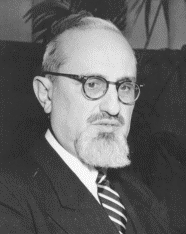
Joseph Ber Soloveitchik was a major American Orthodox rabbi, Talmudist, and modern Jewish philosopher. He was a scion of the Lithuanian Jewish Soloveitchik rabbinic dynasty.
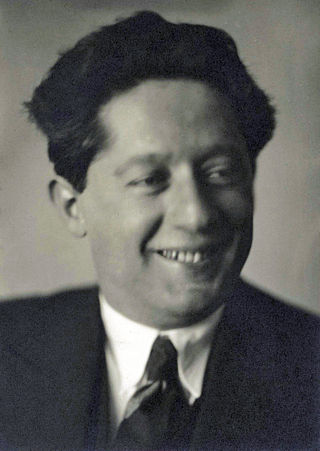
Saul Lieberman, also known as Rabbi Shaul Lieberman or, among some of his students, the Gra"sh, was a rabbi and a Talmudic scholar. He served as Professor of Talmud at the Jewish Theological Seminary of America (JTSA) for over 40 years, and for many years was dean of the Harry Fischel Institute in Israel and also president of the American Academy for Jewish Research.
The Committee on Jewish Law and Standards is the central authority on halakha within Conservative Judaism; it is one of the most active and widely known committees on the Conservative movement's Rabbinical Assembly. Within the movement it is known as the CJLS. The current chairman of the CJLS is Rabbi Pamela Barmash.
The Union for Traditional Judaism, founded in 1984, is a traditional, Halakhic Jewish outreach and communal service organization. It initially called itself "The Union for Traditional Conservative Judaism" but dropped "Conservative" from its title when it broke with the Conservative movement. In 1985 Rabbi Ronald D. Price was tapped to lead the organization as executive director and later as Executive Vice President. He served in that capacity for 26 years until his retirement in 2011. He was succeeded by Rabbi David Bauman and then Rabbi Gerald Sussman who is currently (2018) the executive director. In 1988 after attempting to affect change within Conservative Judaism, the UTJ membership voted to drop the word 'Conservative' from its title. Following a two-year period of negotiations, the Rabbinic Fellowship of the UTJ absorbed a modern Orthodox rabbinic organization, the Fellowship of Traditional Orthodox Rabbis. The merged rabbinic body is known today as MORASHAH. Some of the UTJ leaders at various times called themselves Conservative, Modern Orthodox or trans-denominational. The UTJ's Institute of Traditional Judaism (ITJ) granted semikhah to a number of rabbis, though as of 2018 there are no current semikhah students. The UTJ's Panel of Halakhic Inquiry has published three volumes of responsa titled "Tomeikh kaHalakhah." The UTJ produced the educational curriculum "Taking the MTV Challenge—Media and Torah Values" designed to provide high-school students with tools to respond to the electronic media. The UTJ is often viewed as representing a denomination or inhabiting an ideological space between Conservative and Orthodox Judaism.

Hayim David HaLevi , was Sephardi Chief Rabbi of Tel Aviv-Yafo.
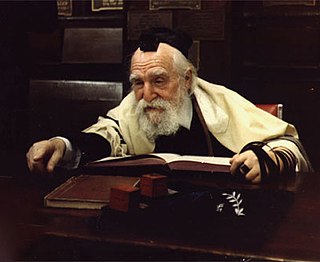
Moshe Feinstein was a Russian-born American Orthodox Jewish rabbi, scholar, and posek. He has been called the most famous Orthodox Jewish legal authority of the twentieth century and his rulings are often referenced in contemporary rabbinic literature. Feinstein served as president of the Union of Orthodox Rabbis, Chairman of the Council of the Moetzes Gedolei HaTorah of the Agudath Israel of America, and head of Mesivtha Tifereth Jerusalem in New York.
Schechter Institute of Jewish Studies, located in the Neve Granot neighborhood of Jerusalem, is an Israeli academic institution.
Conservative Judaism views halakha as normative and binding. The Conservative movement applies Jewish law to the full range of Jewish beliefs and practices, including thrice-daily prayer, Shabbat and holidays, marital relations and family purity, conversion, dietary laws (kashrut), and Jewish medical ethics. Institutionally, the Conservative movement rules on Jewish law both through centralized decisions, primarily by the Rabbinical Assembly and its Committee on Jewish Law and Standards, and through congregational rabbis at the local level. Conservative authorities produced voluminous Responsa literature.
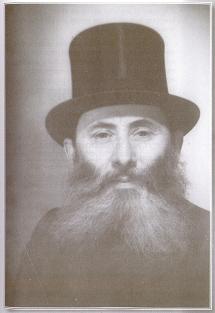
Menachem Mendel Kasher was a Polish-born Israeli rabbi and prolific author who authored an encyclopedic work on the Torah entitled Torah Sheleimah.
In Jewish law, a posek is a legal scholar who determines the application of halakha, the Jewish religious laws derived from the written and Oral Torah, in cases of Jewish law where previous authorities are inconclusive, or in those situations where no clear halakhic precedent exists.
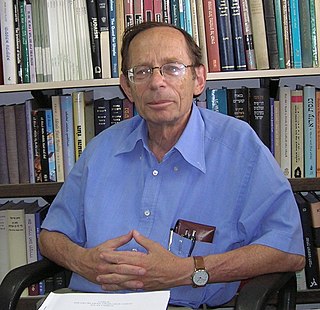
Gerald Blidstein was professor emeritus of Jewish philosophy at Israel's Ben-Gurion University of the Negev. He was the Israel Prize laureate in Jewish philosophy (2006) and had been a member of the Israel Academy of Sciences since 2007.
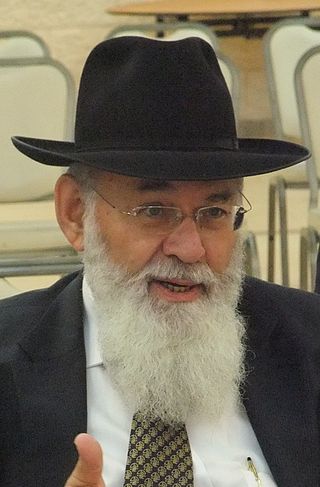
Avraham Steinberg is an Israeli medical ethicist, pediatric neurologist, rabbi and editor of Talmudic literature.

Iggeret of Rabbi Sherira Gaon, also known as the Letter of Rav Sherira Gaon, and the Epistle of Rav Sherira Gaon, is a responsum penned in the late 10th century in the Pumbedita Academy by Sherira ben Hanina, the Chief Rabbi and scholar of Babylonian Jewry, to Rabbi Jacob ben Nissim of Kairouan, in which he methodologically details the development of rabbinic literature, bringing down a chronological list of the Sages of Israel from the time of the compilation of the Mishnah, to the subsequent rabbinic works, spanning the period of the Tannaim, Amoraim, Savoraim, and Geonim under the Babylonian Exilarchs, concluding with his own time. Therein, Sherira ben Hanina outlines the development of the Talmud, how it was used, its hermeneutic principles, and how its lessons are to be applied in daily life whenever one rabbinic source contradicts another rabbinic source. It is considered one of the classics in Jewish historiography.
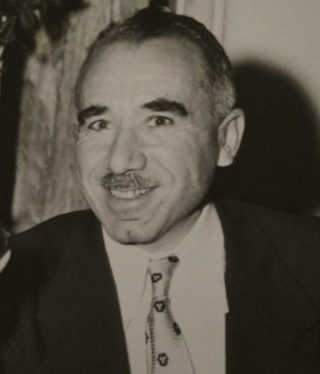
Theodore Tuvia Zvi Friedman was an American and Israeli conservative rabbi, spiritual leader, and author. From 1962 to 1964, he served as the president of The Rabbinical Assembly, the international association of Conservative rabbis. During his tenure, he supported the African-American Civil Rights Movement.
